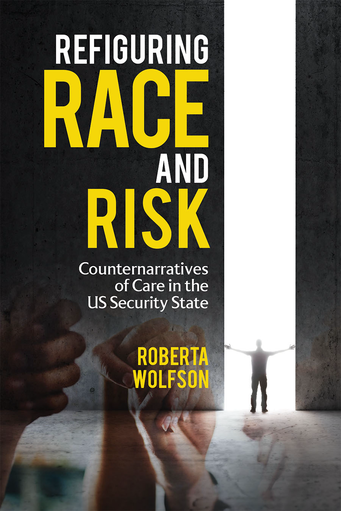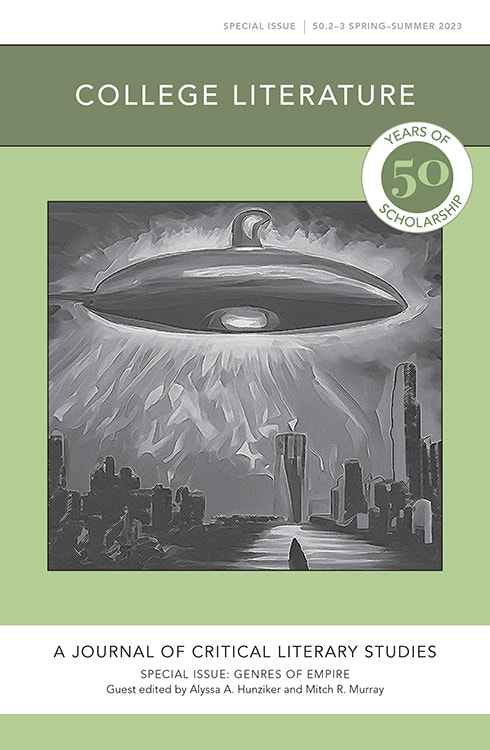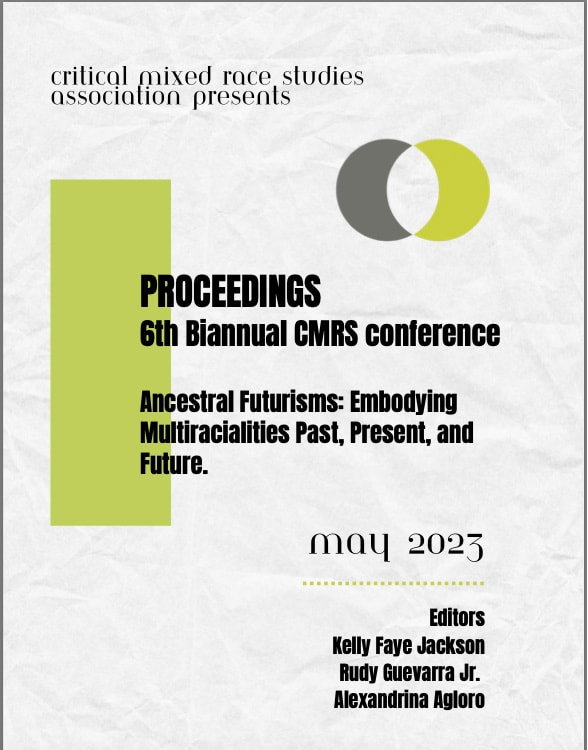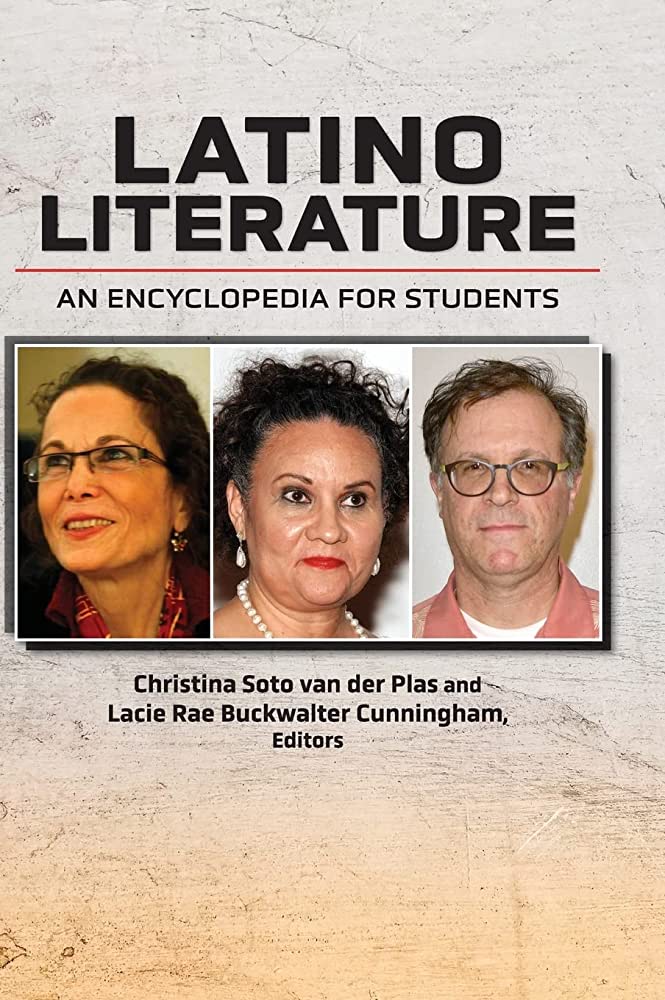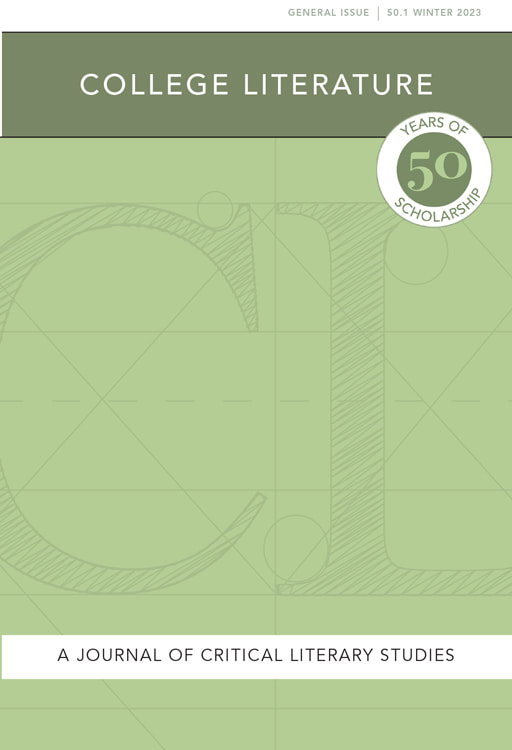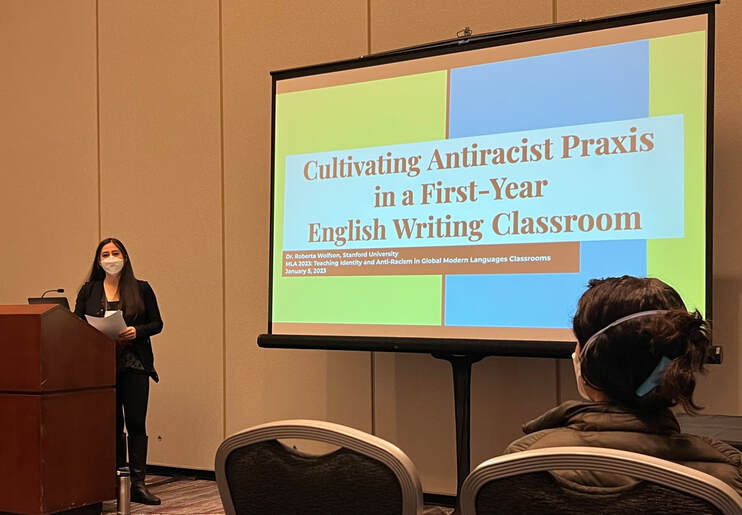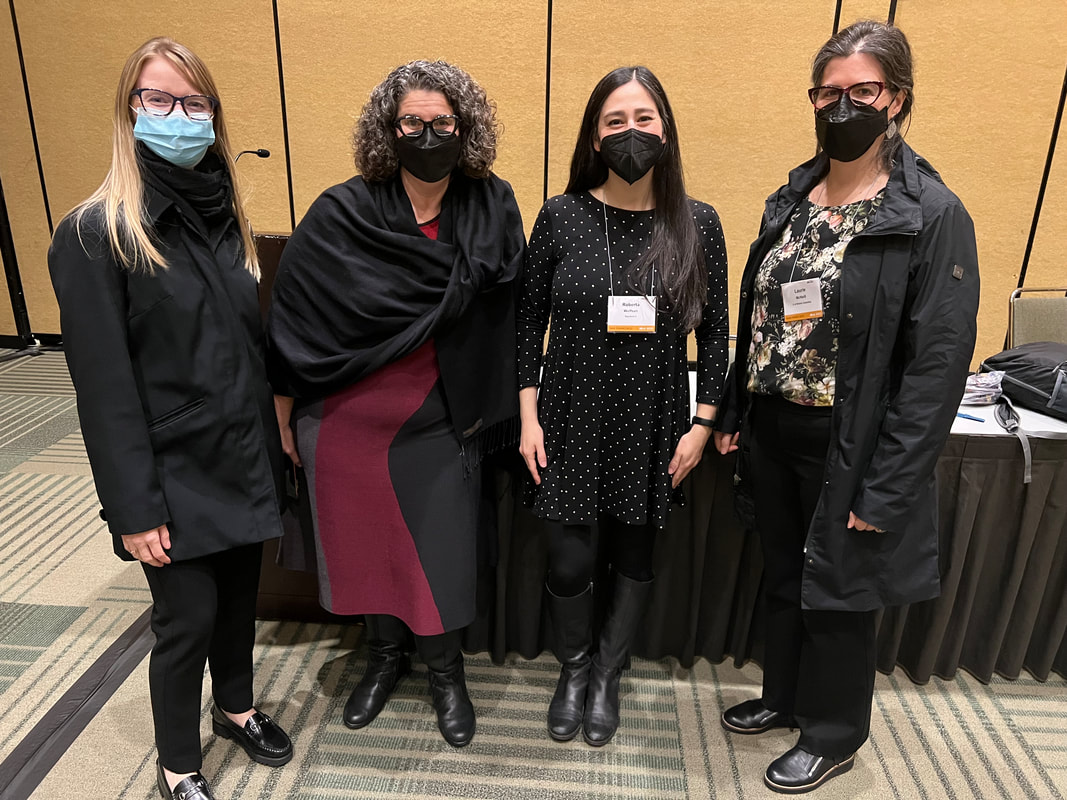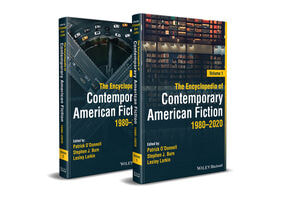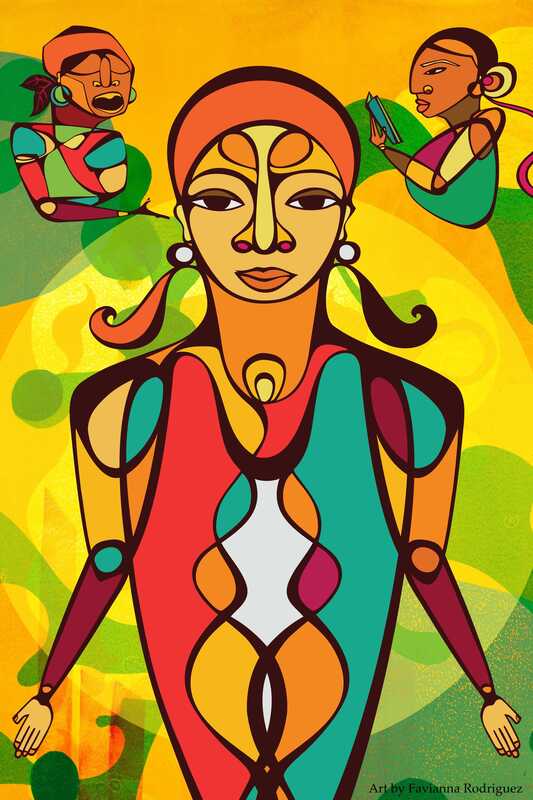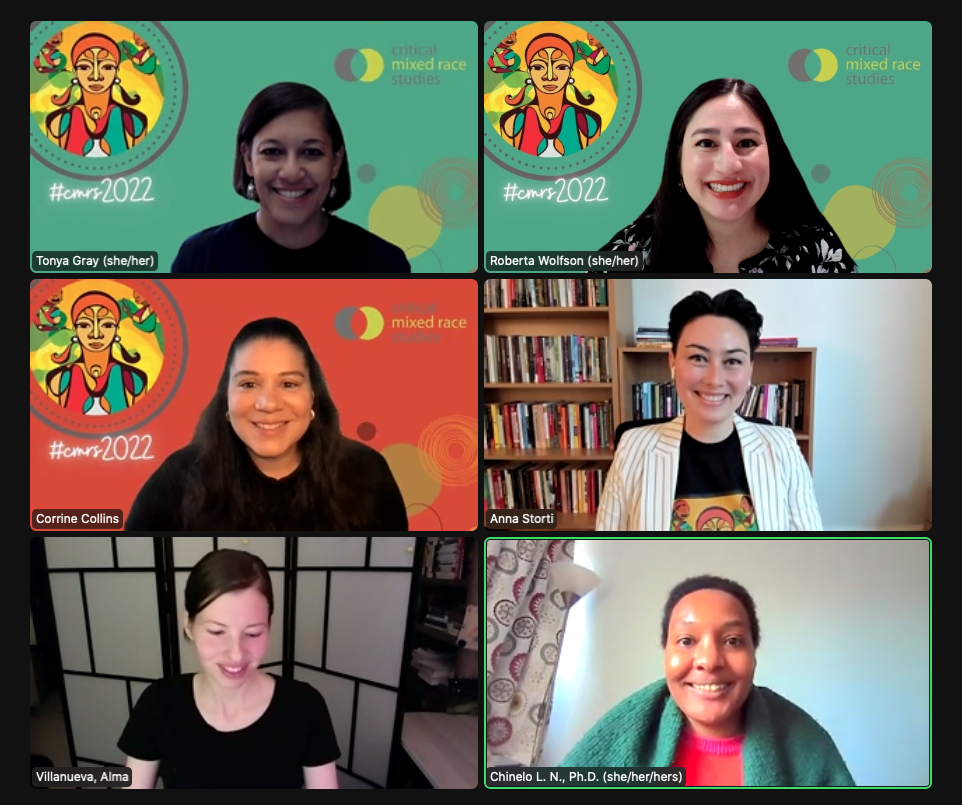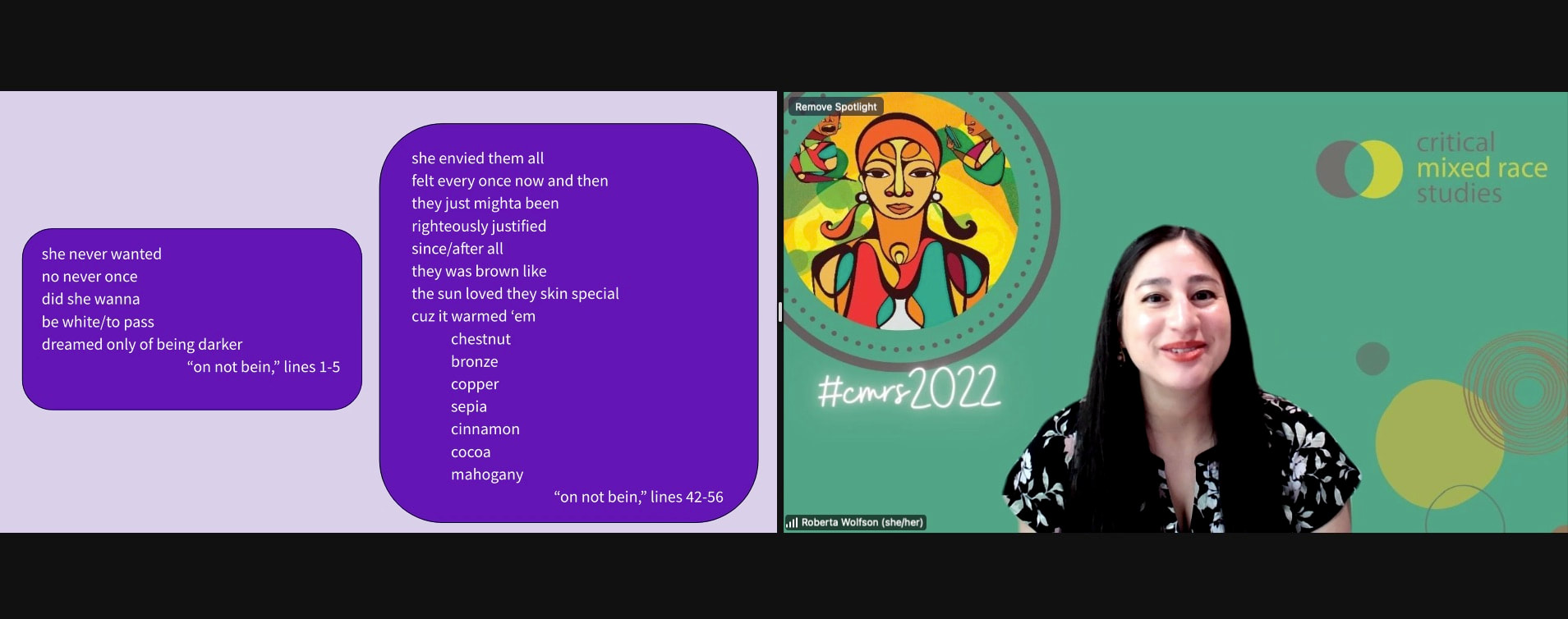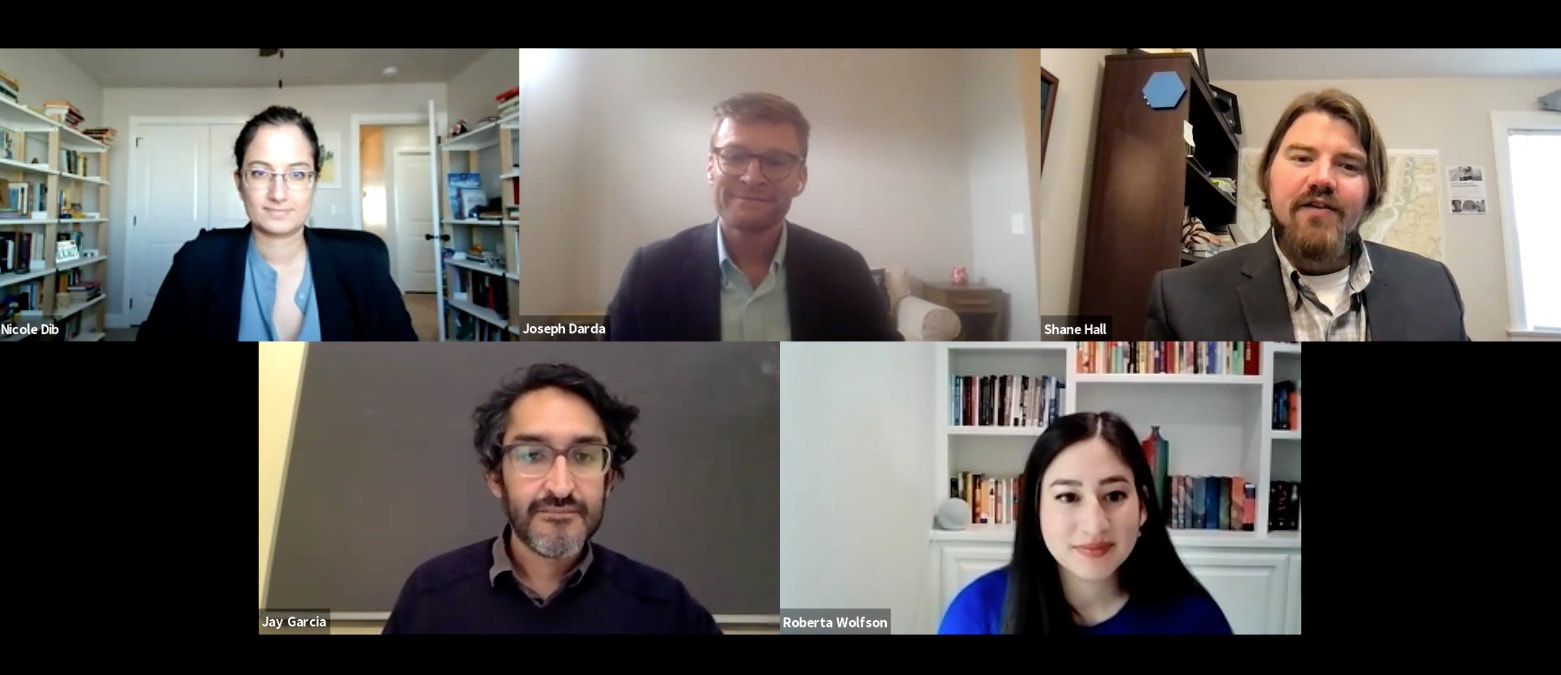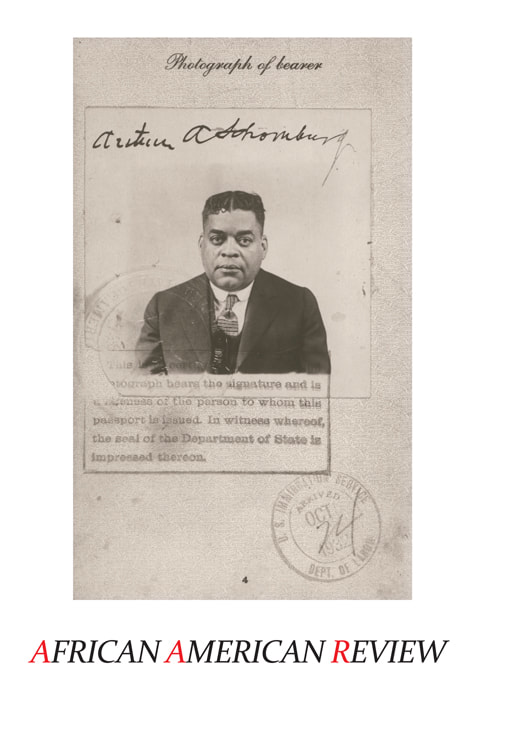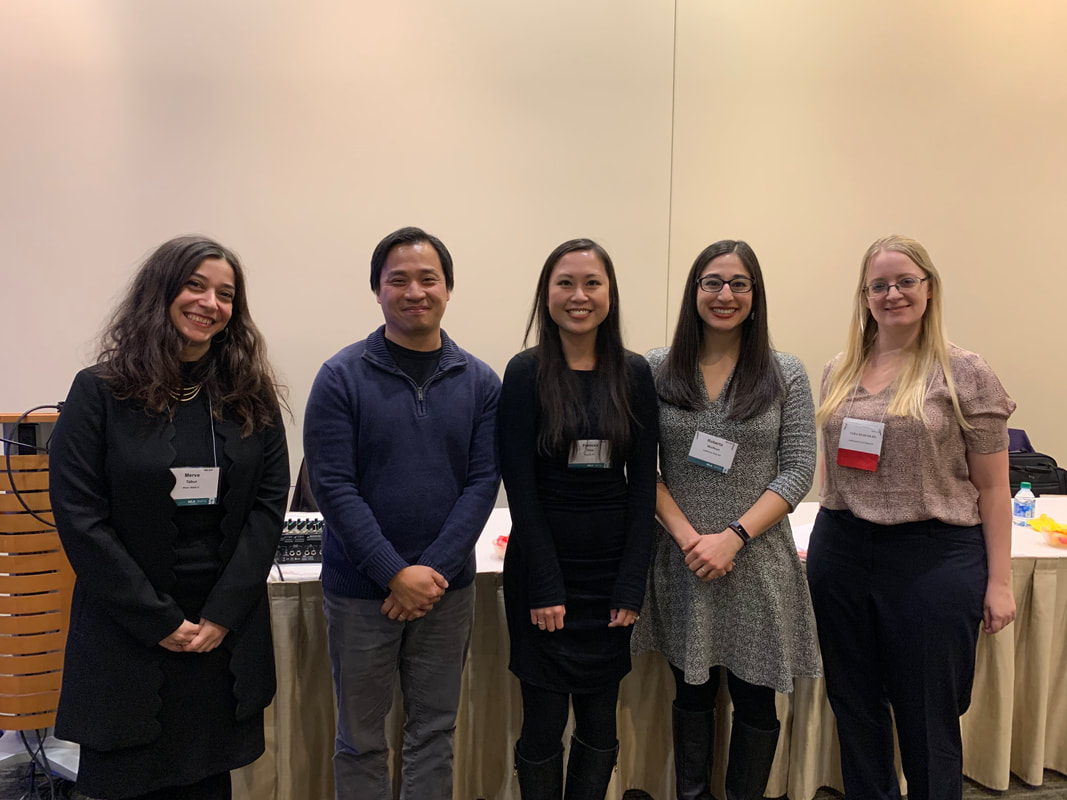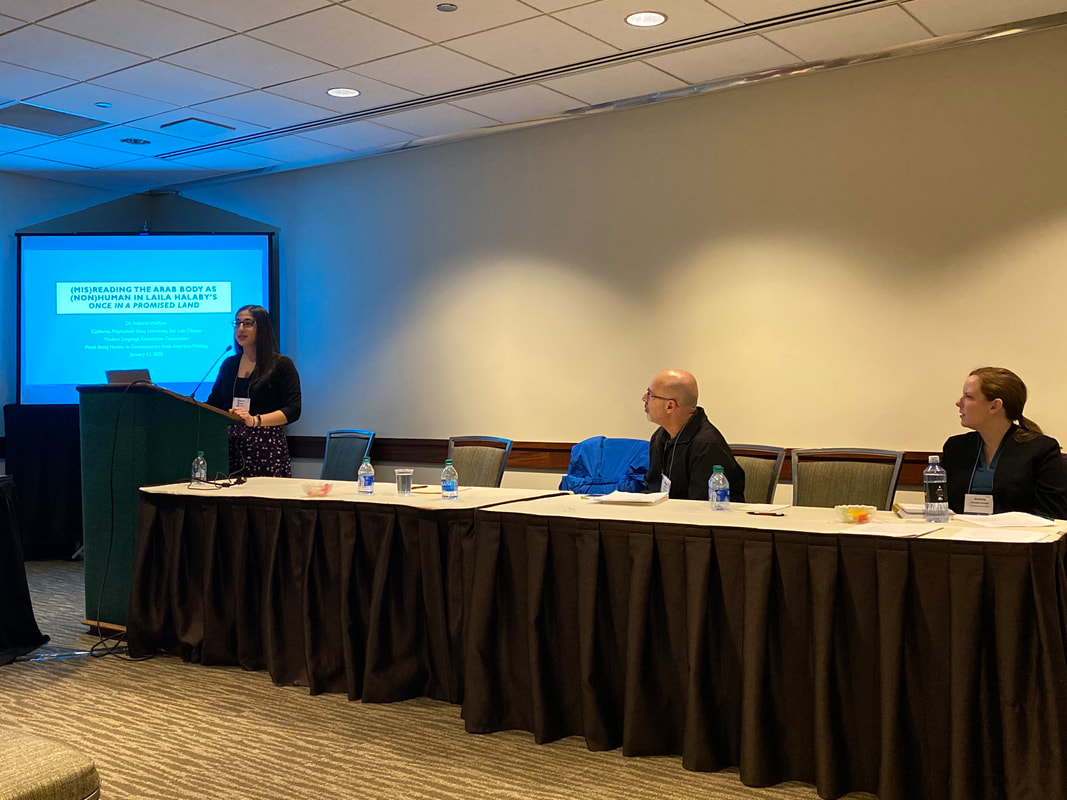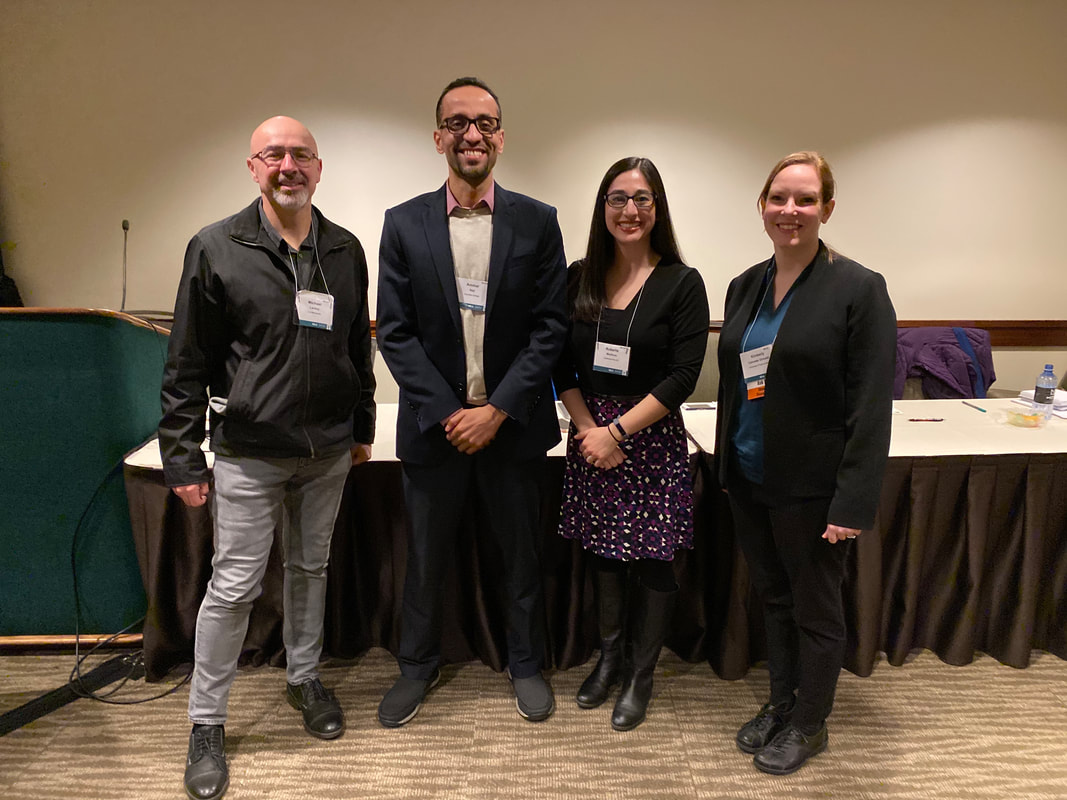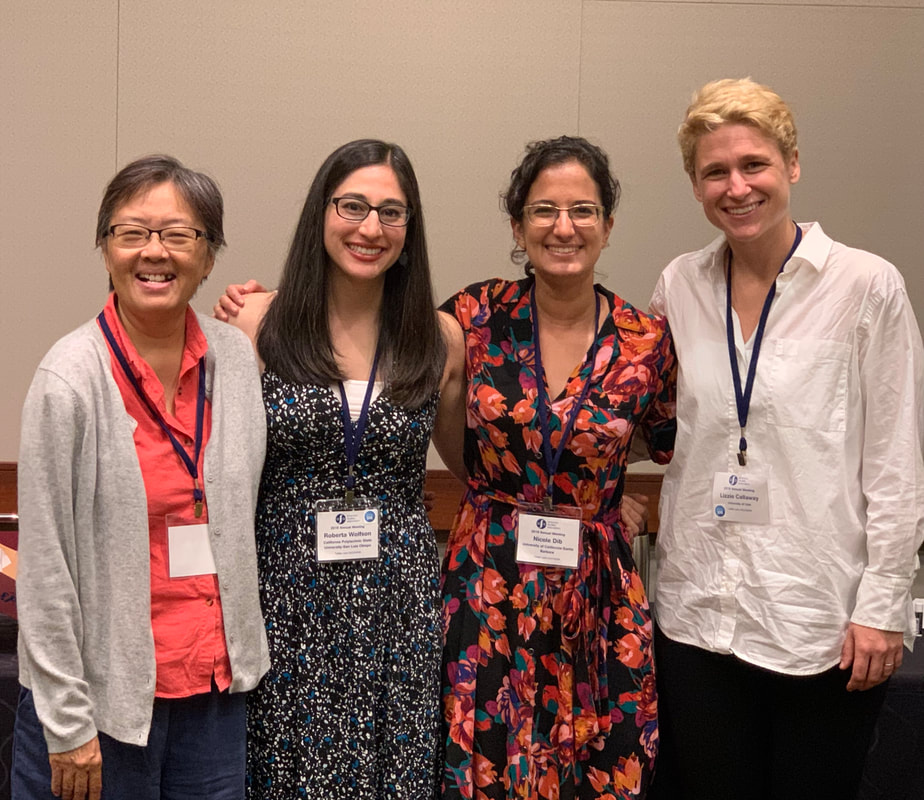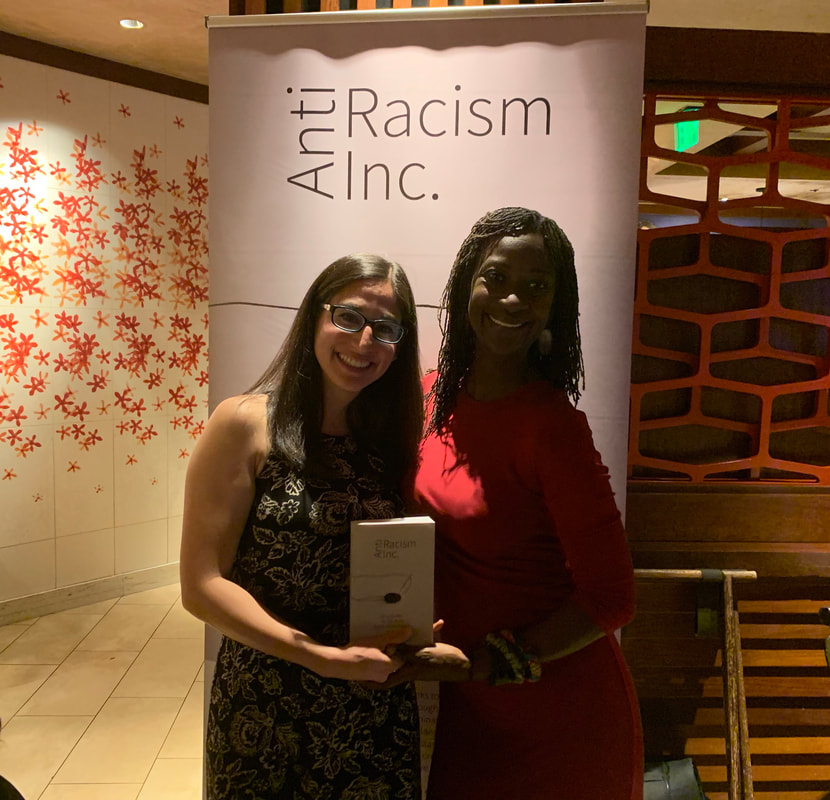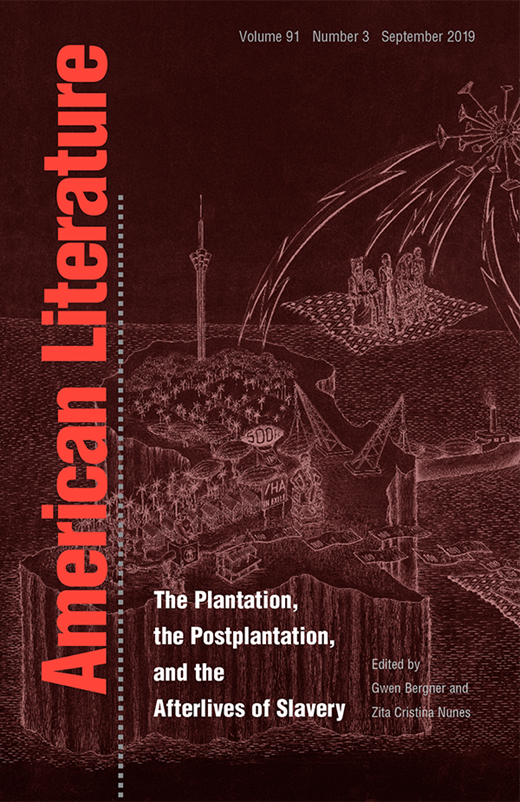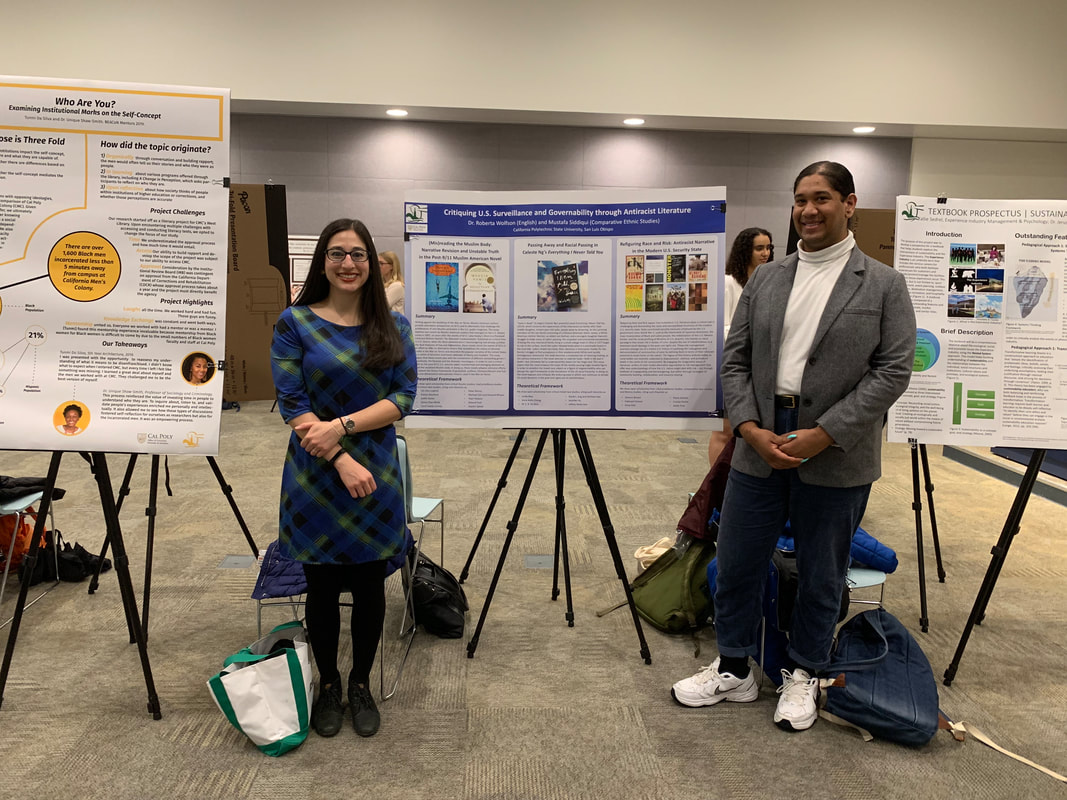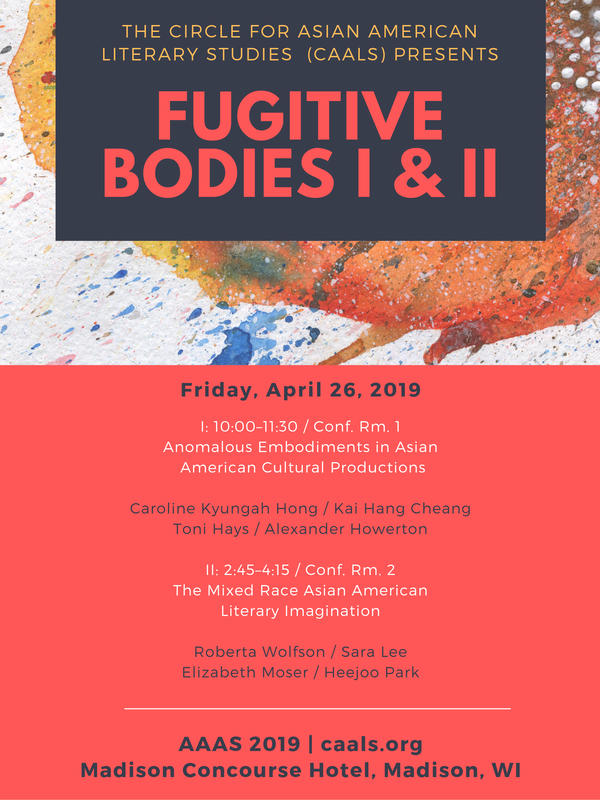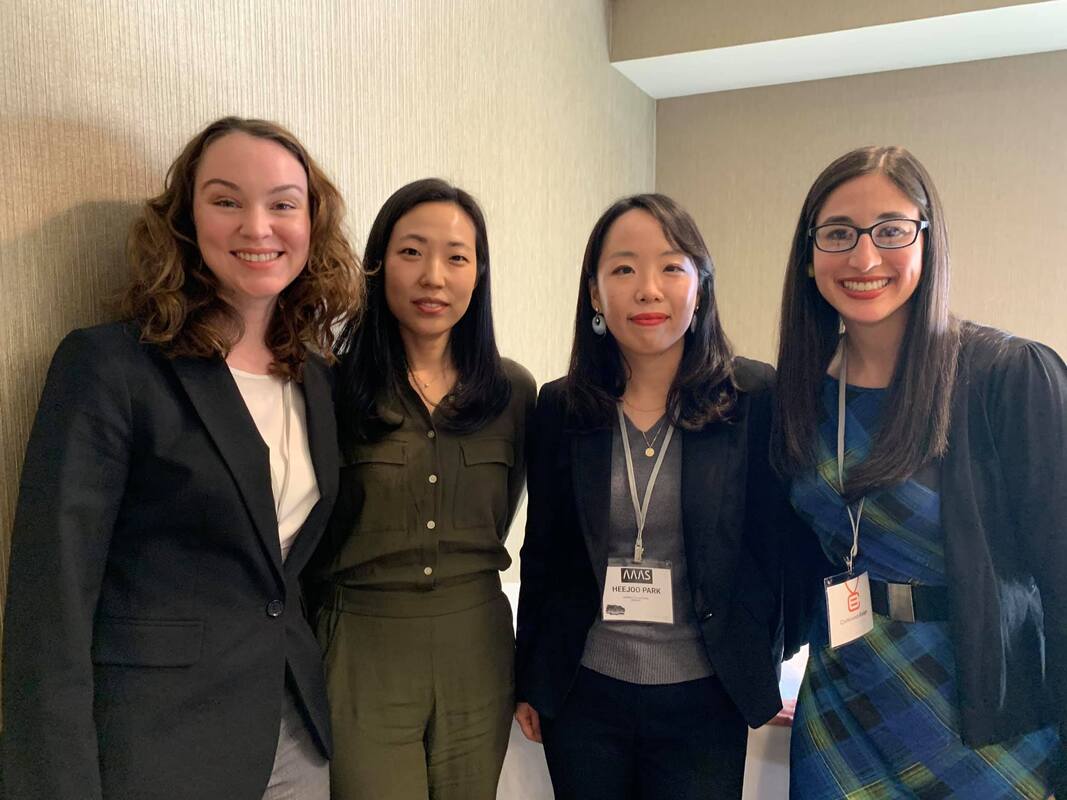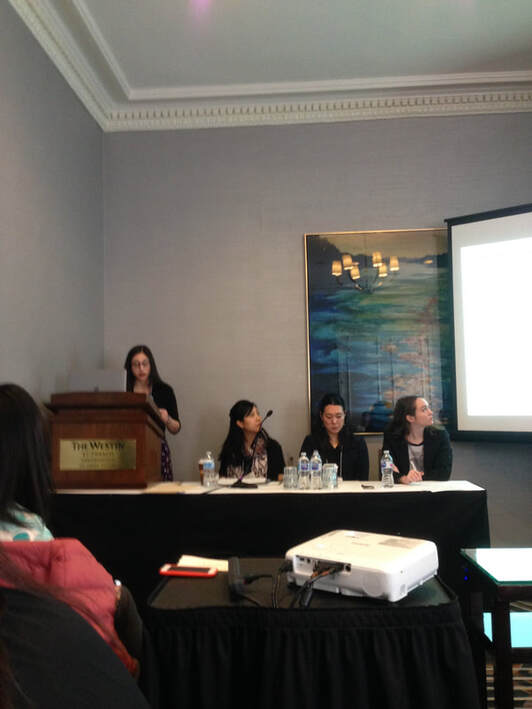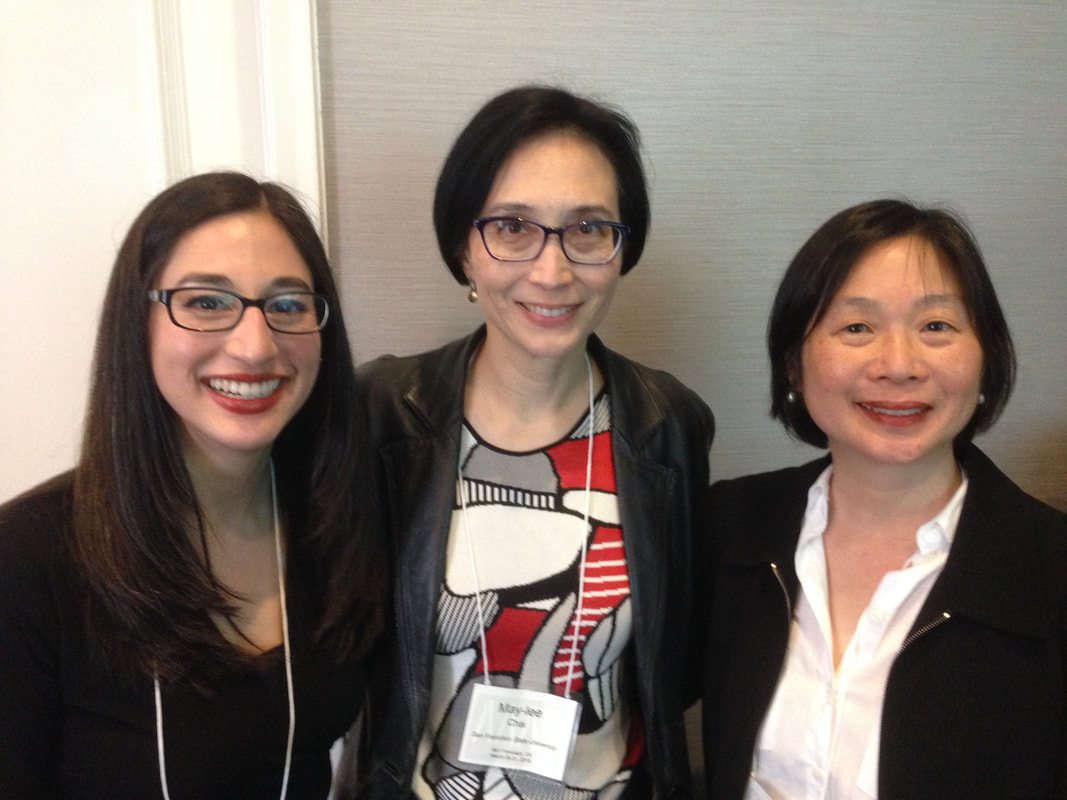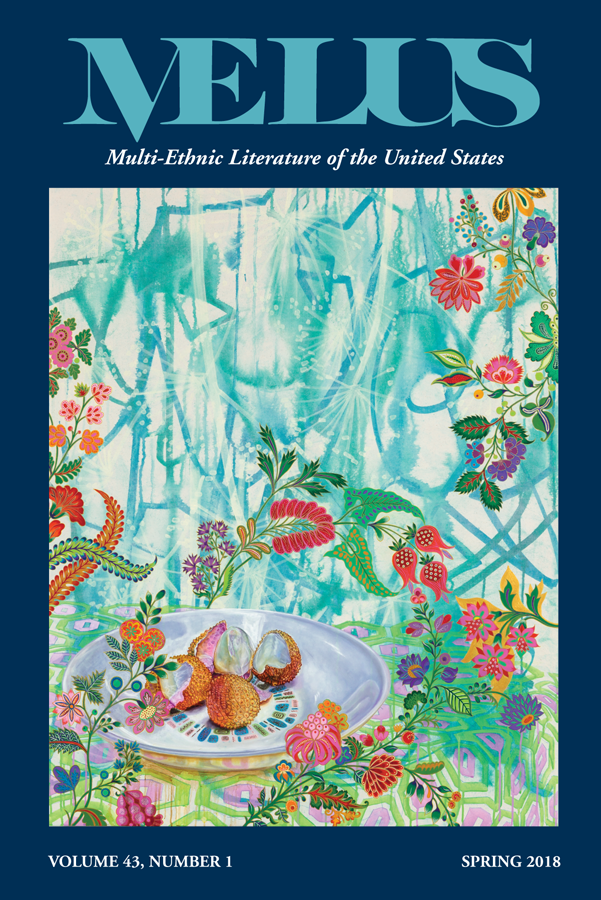|
I am thrilled to announce that my book manuscript, Refiguring Race and Risk: Counternarratives of Care in the Security State, is scheduled to be published by The Ohio State University Press in July 2024 as part of the Fall 2024 catalog. After working on this manuscript for over a decade, I am humbled and awed to be able to begin the countdown to seeing it in print.
Here is the description of my book from the publisher: "In Refiguring Race and Risk, Roberta Wolfson turns to novels, memoirs, and other cultural works to debunk the false sense of national security rooted in positioning people of color as embodiments of risk. Considering output by Miné Okubo, Sanyika Shakur, Abraham Verghese, Khaled Hosseini, Helena María Viramontes, and others, Wolfson demonstrates how these authors disrupt racist security regimes and model alternative strategies for managing risk by crafting stories of collective care and community building. Chapters discuss, among other examples, how gang members defy the mass incarceration of Black and Latinx Americans by committing to self-education and self-advocacy; how an Asian immigrant doctor offers a corrective to the pandemic-era trend of allowing xenophobia to inform public health decisions by providing human-centered medical services to HIV-positive patients; and how Latinx migrant farmworkers battle ongoing precarity amid the increasing militarization of the US-Mexico border by bartering life-sustaining resources. In revealing how these works cultivate love as a mode of political resistance, Wolfson relabels people of color not as a source of risk but as critical actors in the push to improve national security."
0 Comments
Last week my latest scholarly essay was published in College Literature: A Journal of Critical Literary Studies as part of a special double issue, "Genres of Empire" (Vol. 50, No. 2-3), which was guest edited by Alyssa Hunziker and Mitch Murray. The collection of essays in this special issue consider how the emerging canon of genre fiction engages with and problematizes contemporary matters of empire (such as colonization, settler colonialism, and neo-imperialism).
My essay, "(Mis)Reading in the Age of Terror: Promoting Racial Literacy through Counter-Colonial Narrative Resistance in the Post-9/11 Muslim Novel," examines two representative works of the post-9/11 Muslim novel, Laila Halaby's Once in a Promised Land (2007) and Mohsin Hamid's The Reluctant Fundamentalist (2007). I argue that these novels rewrite the history of the 9/11 tragedy from a position of counter-colonial resistance in order to denounce the post-9/11 US counterterror state's misinformed and damaging attempts to read the racialized Muslim body. To learn more, you can access the full special issue here, as well as my specific essay here. In a previous blog post, I wrote about my experience presenting at the 6th biennial meeting of the Critical Mixed Race Studies (CMRS) Association, which was held virtually from February 24-26, 2022. Over 400 scholars, artists, and activists convened under the conference theme "Ancestral Futurisms: Embodying Multiracialities Past, Present, and Future." I am pleased to share that my research essay, "Rewriting the Mixed Self: Narrative Resistance against the White Monoracial Imagination," was recently published in the conference proceedings for this meeting. To read my essay along with many other compelling articles about mixed race identity and experiences, you can download the 2022 conference proceedings from the CMRS Association website.
I'm thrilled to announce that today is the official publication date for Latino Literature: An Encyclopedia for Students (edited by Christina Soto van der Plas and Lacie Rae Buckwalter Cunningham, published by ABC-Clio), a new resource that provides an essential overview of the major literary works produced by Latinx authors alongside related thematic concepts. I contributed an entry to this encyclopedia in which I discuss the life and works of Los Angeles-based Chicano author/activist Luis Javier Rodriguez, whose memoir Always Running: La Vida Loca, Gang Days in L.A. (1993) was the focus of my first essay of literary criticism. If you would like to read more about how Rodriguez uses his writings (which include memoirs, poetry collections, and short stories) to reduce gang violence, build Chicanx community and identity, and support at-risk youth, click here to download the full copy of my entry.
I am thrilled to announce that my latest article has been published in the winter 2023 edition of College Literature: A Journal of Critical Literary Studies. I first presented the initial ideas for this essay at the 2018 American Literature Association Convention during a panel sponsored by the Circle of Asian American Literary Studies on "Refugee Counternarratives." It is particularly gratifying for me to see this article in print after spending many years developing and fine-tuning its central argument.
Titled "'A Man of Two Faces and Two Minds': Just Memory and Metatextuality in The Sympathizer's Rewriting of the Vietnam War," this essay considers how Viet Thanh Nguyen's Pulitzer Prize-winning debut novel The Sympathizer (2015) represents the history of the Vietnam War from an inclusive lens of remembrance that the author terms "just memory" in his book Nothing Ever Dies: Vietnam and the Memory of War, which was published shortly after The Sympathizer in 2016 and can be read as a scholarly companion to the novel. I argue that The Sympathizer employs several metatextual rhetorical techniques (such as characterizing the narrator as a figure of duality, featuring a nested narrative form, and self-referentially exploring the performativity of writing) in order to denounce the self-serving, one-sided rhetoric of "unjust memory." I show how the novel instead advocates for practicing a more ethical approach to the other that is rooted in recognizing the possibilities and limitations of narrative representation. You can read the abstract and download the full article with institutional access here. This past week, I had the pleasure of attending and presenting at the 138th meeting of the Modern Language Association, which took place from June 5-8, 2023 in San Francisco. This annual gathering brought together thousands of teachers and scholars dedicated to the study of language and literature to share their ideas and research related to the presidential theme "Working Conditions." According to the conference organizers, this theme invited conversation about the following questions:
Throughout the convention, I participated in two sessions focused on exploring the various kinds of labor that I perform as a university writing instructor and literary scholar. First, I presented a talk entitled "Cultivating Antiracist Praxis in a First-Year English Writing Classroom" for a pedagogy-focused panel, "Teaching Identity and Anti-Racism in Global Modern Languages Classrooms." In this talk, I provided an overview of how I teach my first-year course, “Writing for Liberation: The Rhetoric of Antiracism," in the Program in Writing and Rhetoric at Stanford. I sought to answer the question of how instructors of English language and writing might cultivate a commitment to antiracist reading, writing, and research practices in undergraduate students through curricular content. I explained how I have designed my course with two critical goals in mind: first, to show students how white language supremacy dominates rhetorical production in U.S. society and second, to equip them with the critical frameworks necessary to challenge such white language supremacy in their own work as writers and researchers. I encountered an unusual situation when I arrived to deliver this talk. Given the historic Bay Area storms taking place at the time of the conference, none of my fellow panelists were able to attend. This meant that I was the sole presenter in front of an audience of over 30 educators and scholars. Due to this unexpected format change, I ended up delivering a stand-alone talk and leading a dynamic Q&A that lasted over an hour. The audience asked powerful questions about how to dig deeper into the work of building inclusive and antiracist writing pedagogy, and I ended up having one of my most memorable and fun conferencing experiences. Fortunately, my second panel, "(Auto)biographies of/as Work," was attended by all of the expected participants, including a scholar who was videoconferencing in from Turkey. Organized by the MLA Life Writing division and presided over by Laurie McNeill (University of British Columbia), this panel sought to consider how forms of autobiography capture, create, and/or critique experiences and conditions of work and labor, as well as how authors view the work of memoir. I delivered a talk titled "Testifying, Witnessing, and Mourning: Care-Based Labor in the AIDS Memoir," which presented research from a chapter of my current book manuscript. In this talk, I read Dr. Abraham Verghese's memoir My Own Country: A Doctor’s Story (1994) as a critical work of care-based literary labor that chronicles his work as an infectious disease specialist in the U.S. South during the 1980s AIDS crisis and seeks to challenge damaging fear-based approaches to managing this epidemic by modeling a contrasting approach rooted in empathy. I was joined by Rüstem Ertug Altinay (Kadir Has University), who presented on queer autobiographical Turkish literature, Deborah Cohler (San Francisco State University), who presented on memoirs written by military spouses, and Kimberly Hall (Wofford College), who presented on memoirs authored by women employees of Silicon Valley tech companies. Taken together, our talks painted a fascinating picture of the powerful work that autobiography can do to build community, expose damaging cultural practices, reclaim identity and agency, and deconstruct notions of what counts as "labor." In addition to delivering these presentations, I enjoyed attending many other riveting panels, reconnecting with former colleagues from UC Santa Barbara and Cal Poly, SLO, and visiting with my book editor. After kicking off the new year in such an invigorating way, I am excited to bring back what I learned into my research and teaching this winter quarter.
I am delighted to share that my latest article has been published in the The Encyclopedia of Contemporary American Fiction, 1980-2020, which was recently published by Wiley-Blackwell. In this article, I provide an overview of the works of Celeste Ng, the author of bestselling novels Everything I Never Told You (2015) and Little Fires Everywhere (2017). I illustrate how throughout her literary career, Ng has sought to understand the motivations behind human behavior and how such behaviors are informed by intersecting systems of oppression like racism, sexism, and classism. You can read the abstract and download the full article with institutional access here.
This past week, I had the great pleasure of attending the latest meeting of the Critical Mixed Race Studies (CMRS) Association, which took place from February 24th to 26th. This conference revolved around the theme "Ancestral Futurisms: Embodying Multiracialities Past, Present, and Future." Over 400 scholars, educators, activists, and artists who think, teach, and organize around multiraciality gathered together virtually from all around the world to reflect on the question of time in relation to mixed race studies, challenge past conceptions of multiraciality dictated by white supremacy, and imagine new forms of multiraciality rooted in decolonization and radical hope. Panels and workshops covered a range of exciting topics, such as the importance of connecting multiracial identity with ancestral knowledge, how to effectively support mixed race students at both the K-12 and university levels, challenges and rewards related to parenting multiracial children, and representations of multiraciality in popular media like speculative fiction, superhero comics, and television and theatrical productions. Educator, singer, and "RAPtivist" (rap activist) Aisha Fukushima delivered the keynote presentation, which powerfully integrated music, speech, and storytelling. The conference theme was beautifully captured by the design pictured below, "Transition," which was created by Favianna Rodriguez, an interdisciplinary artist, cultural strategist, and social justice activist based in Oakland, CA. To see more of her art, please visit www.favianna.com. On the second day of the conference, I presented on a panel titled "Toward a More 'Critical' Mixed Race Studies: Troubling Representations of Race and Gender" alongside fellow scholars Dr. Anna Storti (Duke University), Ph.D. candidate Alma Villanueva (Texas A&M University) and Dr. Corinne Collins (University of Southern California). Attracting over 80 attendees, our panel examined popular representations of multiraciality in media, narrative, and visual culture in the late twentieth and early twenty-first centuries, with the goal of problematizing how progress narratives are often attached to mixed race bodies. My presentation, "Rewriting the Mixed Self: Narrative Resistance against the White Monoracial Imagination," was inspired by ongoing conversations that I have been having with my students in a new course on multiracial rhetorics that I am teaching this quarter at Stanford, "Not Part but Whole: Writing Mixed Race Identity." In this talk, I considered the tensions between popular discourses about multiraciality and narrative testimonials by mixed race authors. I demonstrated how works by Sui Sin Far, Gloria Anzaldúa, and Mary Hope Whitehead Lee challenge popular conceptions of mixed race people as figures of shame, tragedy, exoticism, and post-raciality. Ultimately, I concluded that these authors engage personal narrative as a life-sustaining platform for reimagining the mixed self beyond the limitations of the white monoracial imagination.
This week I attended the 2021 American Studies Association Convention, which was held virtually from October 11-14, 2021. Organized around the presidential theme "Creativity within Revolt," this annual meeting sought to explore the following questions named in the convention program:
I contributed to these discussions by presenting my own research on a panel called "The Containment and Revolt of Antiracist Literature" on October 13th. This panel sought to examine how and why literature has been conceptualized as a vehicle through which to challenge white supremacy, as well as how authors and readers both creatively use narrative to advance antiracist goals and revolt against the constraints of feel-good liberal antiracism. My fellow panelists (pictured above in our virtual conference room) included Nicole Dib, an assistant professor of English at Southern Utah University, who demonstrated how John Okada's 1957 novel No-No Boy employs the trope of automobility to critique Japanese incarceration during World War II; Joseph Darda, an assistant professor of English and comparative race and ethnic studies at Texas Christian University, who explored the development throughout the 1940s of so-called "race novels," such as Richard Wright's Native Son, Lillian Smith's Strange Fruit, and Willard Motley's Knock on Any Door; and Shane Hall, an assistant professor of environmental studies at Salisbury University, who demonstrated how Omar El Akkad's 2017 climate fiction novel American War reinforces racist ideologies under the guise of resource security. Our session chair was Jay Garcia, an associate professor of comparative literature at New York University, who responded to our papers with stimulating questions and commentary. My presentation, titled "(Anti)Racist Reading Practices and the U.S. War on Terror in Mohsin Hamid's The Reluctant Fundamentalist," explored how Hamid's novel rewrites the history of the 9/11 tragedy from a position of counter-colonial resistance in order to denounce the post-9/11 U.S. counterterror state's misinformed, damaging, and racist attempts to read the racialized Muslim body. I argued that by exposing the challenges of reading and interpreting (racial) others in the post-9/11 U.S. counterterror state, The Reluctant Fundamentalist subverts the racist reading practices of the post-9/11 U.S. security state and destabilizes the binary frameworks of good/bad, us/them, Christian/Muslim that fuel the one-dimensional Islamophobic rhetoric used to justify the neo-imperial abuses of the U.S. War on Terror. If you'd like to learn more about my remarks, you can check out a full recording of my presentation below. Recently I was invited by the journal African American Review to provide a review of Candice Jenkins' book Black Bourgeois: Class & Sex in the Flesh (University of Minnesota Press, 2019). The latest edition of African American Review (Spring/Summer 2021) features my review, in which I discuss how Black Bourgeois examines a phenomenon that Jenkins calls "the black and bourgeois dilemma" (6), a conundrum that defines the lived experiences of the middle-class Black subject who enjoys the protection of material wealth while simultaneously enduring the precarity of blackness. To learn more about my thoughts on Jenkins' book, you can access my full review here.
Last week I attended the 2020 Modern Language Association Convention in Seattle, WA, which took place from January 9-12, 2020. The presidential theme was "Being Human," and scholars, educators, and activists from all over the world came together to reflect on the role of language and literature in defining what it means to be human. I presented on two panels. The first panel, which was entitled "Alternative Genealogies of the Speculative" and arranged by the Genre Studies Forum for Speculative Fiction, questioned U.S.- and Eurocentric frameworks of speculative fiction by considering the role of the speculative genre in non-U.S. and non-Western contexts. My paper, "Speculative Reimaginings of the Global Refugee Crisis in Mohsin Hamid's Exit West," explored how the Pakistani Muslim writer Mohsin Hamid uses cognitive estrangement in his most recent novel Exit West to disrupt white supremacist, Eurocentric, and neo-colonial forms of violence enacted on the Global South by the Global North. The second panel I presented on, which was a special session entitled "Being Human in Contemporary Arab Writing," considered how contemporary Arab literature complicates the question of the human and post-human due to diaspora, postcolonial migration, civil wars, and regional border crossings. My paper, "(Mis)Reading the Arab Body as (Non)Human in Laila Halaby's Once in a Promised Land," explored how Halaby's novel critiques the post-9/11 U.S. security state’s misinformed practices of reading the racialized Arab body as non- or subhuman and offers an alternative model for reading Arabs that asserts their humanity. In addition to presenting on these two panels, I had a great time reuniting with old friends from my graduate program, engaging in stimulating conversation with other scholars, and exploring the dynamic city of Seattle.
This past week I attended the 2019 American Studies Association Convention in Honolulu, HI, where I had a wonderful time engaging in stimulating conversation with other scholars, activists, and educators. The theme of the conference was "Build As We Fight," and all of the panels, roundtables, and talks were focused on thinking about how we scholars and educators might resist the oppressive and genocidal effects of white supremacy and create alternative means of survival and community building. Along with Nicole Dib, a Ph.D. candidate at the University of California, Santa Barbara (UCSB), I helped organize a panel entitled "Imagining the Future of Resistance: Speculative Fiction and the Aesthetics of Social Transformation." This panel turned a critical lens toward speculative fiction to ask how activist writers of color use this genre to challenge the violence of a U.S. state that routinely attempts to erase native communities, exacerbate climate change, and exclude immigrants from civic belonging. In her paper, Nicole explored how two contemporary Native American authors, Louise Erdrich and Rebecca Roanhorse, build new ways of imagining community in speculative fiction novels that feature characters on the run from world-ending catastrophes. In my paper, entitled "Imagining the Dystopian Future of U.S. Immigration in Sabrina Vourvoulias’ Ink," I considered how Sabrina Vourvoulias' speculative fiction novel Ink warns about the current path of U.S. immigration policy and raise questions about the economic, social, political, and spiritual costs of allowing xenophobic sentiment and practices to continue to escalate in this nation. Our third panelist, Elizabeth Callaway, an assistant professor of English at the University of Utah, took our discussion beyond the world as we know it by discussing how an Afrofuturist novel set in an alternate universe, N. K. Jemisin's The Fifth Season, models climate change and urges new engagements with environmental crisis. Chairing and commenting on these individual papers was Ruth Hsu, a professor at the University of Hawai'i at Manoa who specializes in Asian American and African American literary and cultural studies and whose research examines the intersection of nation, gender, and ethnicity. Here is a picture of the entire panel posing after our session. In addition to presenting on this panel and listening to other talks, I was delighted to attend the launch party for the recently published edited collection Antiracism Inc.: Why the Way We Talk about Racial Justice Matters (2019, co-edited by Felice Blake, Paula Ioanide, and Alison Reed). I am especially excited about the publication of this collection, as I helped organize many of the conferences and conversations that gave rise to this publication when I served as a Graduate Fellow for the "Antiracism Inc." program (2013-2016) sponsored by UCSB's American Cultures and Global Contexts Center under the direction of Felice Blake, one of my dissertation advisors. This launch party was truly an occasion of fellowship and celebration. Here is a picture of Felice and me posing together with a copy of the book.
I am delighted to share that my latest research article, "Race Leaders, Race Traitors, and the Necropolitics of Black Exceptionalism in Paul Beatty's Fiction," was published today in the scholarly journal American Literature (volume 91, issue 3). This article was published as part of a special topic issue on "The Plantation, the Postplantation, and the Afterlives of Slavery," which was guest edited by Gwen Bergner (Associate Professor, West Virginia University) and Zita Cristina Nunes (Associate Professor, University of Maryland). You can read the abstract and download the full article with institutional access here.
This 2018-19 academic year, I have been serving as one of 22 faculty mentors in the BEACoN (Believe, Educate & Empower, Advocate, Collaborate, Nurture) Research and Mentorship Program, which pairs students from underrepresented backgrounds with faculty researchers to conduct research in their field of interest. The goal of this program is to teach underrepresented students about the process of conducting research while also giving faculty critical support to achieve their research goals.
In Fall 2018, I selected Mustafa Siddiqui, a second-year student in the comparative ethnic studies major, out of a competitive applicant pool to be my student research assistant. Throughout the winter and spring quarters, Mustafa has provided me with invaluable research support as I worked on several writing projects, including an article for an academic journal, a conference paper, and my current book manuscript. Mustafa has helped me by conducting literature searches to find relevant sources, reading selected sources and compiling annotated bibliographies, and reviewing drafts of my writing. Yesterday Mustafa and I attended the annual BEACoN Research Symposium, where we presented a poster summarizing our research. This event provided us with the opportunity not only to share our research, but also to learn about the many other exciting and inspiring projects being conducted by other faculty-student research pairs across campus. I was impressed to see that these projects reflect cutting-edge research from a variety of different disciplines, including architecture, biological sciences, civil and environmental engineering, communication studies, English, ethnic studies, industry management, history, kinesiology and public health, landscape architecture, marketing, physics, psychology and child development, education, and social sciences. I feel grateful to be a part of this inspiring community of faculty and student researchers. I just got back from the 2019 Association for Asian American Studies Convention (AAAS) in Madison, WI, where I had an incredible time engaging in stimulating conversation with other scholars and activists. I organized a panel titled "The Mixed Race Asian American Literary Imagination" sponsored by the Circle for Asian American Literary Studies (CAALS). Here is a poster announcing the two panels sponsored by CAALS this year: In my paper titled "Passing Away and Racial Passing in Celeste Ng's Everything I Never Told You," I considered how Ng's novel employs the trope of the tragic mulatta figure to establish the mixed race subject as a figure of ungovernability. I was joined on the panel by Sara Lee (English Ph.D. student at SUNY Binghamton University), who considered the representation of racial ambiguity in Chang-Rae Lee's Aloft; Elizabeth Moser (English Ph.D. student at George Washington University), who explored mixed race counter-histories in Viet Thanh Nguyen's The Sympathizer; and Heejoo Park (English Ph.D student at UC Riverside), who discussed the genre of the mixed race bildungsroman in Asian American and Latinx young adult fiction. Here is a picture of us after the panel. On my last day of the conference, I attended the section meeting for the Critical Mixed Race Studies caucus of the AAAS, where I met many other scholars engaged in Asian American critical mixed race studies. During this section meeting, we held leadership position elections, and I am excited to share that I was selected to be the next secretary of the CMRS-AAAS caucus, a position that I will hold until next year's AAAS conference in April 2020 in Washington, D.C. In my role as secretary, I will attend CMRS meetings and maintain records, as well as work with the newly appointed president Anna Storti to ensure that CMRS sponsors a couple panels at next year's AAAS conference. I am looking forward to taking on this new leadership position!
I just returned from the 2018 Association for Asian American Studies Convention in San Francisco, CA, where I had a very exciting experience. As I was presenting my paper, "'We Lacked Allies': Searching for Cross-Cultural Solidarity in May-lee Chai's Hapa Girl," I looked out into the audience and saw none other than the very author whose work I was presenting on, May-lee Chai herself! Her presence struck me as a gift, as it was incredibly humbling and exciting to meet and chat with the brilliant mind who created Hapa Girl.
After the panel was over, May-lee and I talked for quite a while; I was delighted to discover that she is not only intelligent and talented, but also warm and friendly. I know that we will continue to stay in touch, and I hope to invite her to Cal Poly to meet with my students when I teach one of her books in the future. I am delighted to share that my latest research article, "Chicano Gang Members at Risk: Containment, Flight, and an Alternative Vision of Sociality in Luis J. Rodriguez's Always Running," was published today in the Spring 2018 issue of MELUS: Multi-Ethnic Literature of the United States (volume 43, issue 1). You can read the abstract and download the full article with institutional access here.
|
AboutCheck out this page for periodic updates about my research, teaching, and community work. |
